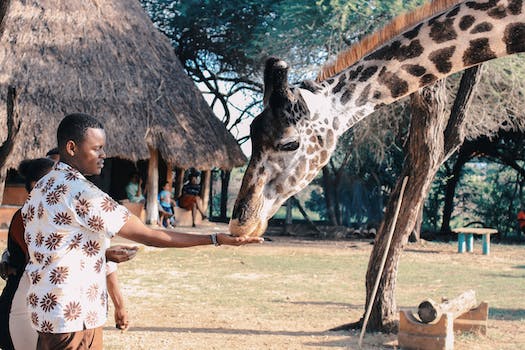

-
Table of Contents
"Embrace the chill, conquer the freeze: Prepare for extreme cold weather."
Introduction
Preparing for extreme cold weather is crucial to ensure the safety and well-being of individuals and communities. As temperatures drop to dangerously low levels, it is important to take necessary precautions and make necessary arrangements to protect oneself and others from the harsh conditions. This introduction highlights the significance of being prepared for extreme cold weather and emphasizes the importance of taking proactive measures to stay safe and comfortable during such challenging circumstances.
Essential Winter Clothing and Gear for Extreme Cold Weather
Preparing for Extreme Cold Weather
When it comes to extreme cold weather, it is crucial to be well-prepared with the right clothing and gear. The frigid temperatures can be dangerous if you are not properly equipped, so it is essential to have the necessary items to keep yourself warm and protected. In this article, we will discuss the essential winter clothing and gear that you should have for extreme cold weather.
First and foremost, a good quality winter coat is a must-have. Look for a coat that is insulated and waterproof to keep you warm and dry. It should also have a hood to protect your head and neck from the cold winds. Layering is key in extreme cold weather, so make sure your coat is roomy enough to accommodate multiple layers underneath.
Next, invest in a good pair of insulated boots. Your feet are particularly vulnerable to the cold, so it is important to keep them warm and dry. Look for boots that are waterproof and have a thick, insulating lining. It is also a good idea to choose boots with a non-slip sole to prevent any accidents on icy surfaces.
In addition to boots, warm socks are essential. Opt for wool or thermal socks that will provide insulation and wick away moisture from your feet. Layering your socks can also help keep your feet warmer, so consider wearing a thin pair of moisture-wicking socks underneath a thicker pair of wool socks.
Gloves or mittens are another crucial item for extreme cold weather. Look for gloves or mittens that are insulated and waterproof. Mittens tend to be warmer than gloves since they keep your fingers together, but gloves offer more dexterity. Consider your needs and choose the option that suits you best. It is also a good idea to have an extra pair of gloves or mittens in case one gets wet or lost.
A hat is essential for keeping your head warm in extreme cold weather. Heat can escape from your head, so it is important to cover it up. Look for a hat that fully covers your ears and is made of a warm, insulating material such as wool or fleece. A hat with a brim can also help protect your face from the wind and snow.
To protect your face further, consider investing in a balaclava or a face mask. These items cover your face, leaving only your eyes exposed. They provide additional insulation and protection from the cold winds. Make sure to choose a balaclava or face mask that is breathable and moisture-wicking to prevent any discomfort.
Lastly, do not forget about your eyes. Snow and ice can be blinding, so it is important to wear sunglasses or goggles to protect your eyes from the glare. Look for sunglasses or goggles that have UV protection and are designed for winter sports to ensure maximum protection.
In conclusion, preparing for extreme cold weather requires the right clothing and gear. A good quality winter coat, insulated boots, warm socks, gloves or mittens, a hat, a balaclava or face mask, and sunglasses or goggles are all essential items. Layering your clothing and choosing materials that are insulating and moisture-wicking will help keep you warm and dry. Remember, being well-prepared is the key to staying safe and comfortable in extreme cold weather.
Tips for Insulating Your Home and Staying Warm in Extreme Cold Weather

Preparing for Extreme Cold Weather
Extreme cold weather can be a challenging and uncomfortable time for many people. It is important to take the necessary steps to insulate your home and stay warm during these harsh conditions. In this article, we will provide you with some useful tips on how to prepare for extreme cold weather.
One of the first things you should do is check the insulation in your home. Proper insulation is crucial in keeping the cold air out and the warm air in. Start by inspecting your windows and doors for any gaps or cracks. These can be sealed with weatherstripping or caulk to prevent drafts. Additionally, consider adding insulation to your attic and walls if they are not already adequately insulated. This will help to retain heat and keep your home warm.
Another important aspect to consider is your heating system. Make sure that it is in good working condition before the cold weather arrives. Have a professional inspect and clean your furnace or heat pump to ensure that it is running efficiently. It is also a good idea to change your air filters regularly to maintain proper airflow. If you have a fireplace, have it cleaned and inspected as well. This will not only help to keep your home warm but also prevent any potential fire hazards.
In addition to insulating your home, it is essential to take steps to stay warm during extreme cold weather. Layering your clothing is a simple yet effective way to trap heat and keep your body warm. Start with a base layer made of moisture-wicking material, such as wool or synthetic fabrics. This will help to keep you dry and prevent sweat from cooling your body. Add a middle layer made of insulating material, such as fleece or down, and finish with an outer layer that is windproof and waterproof.
It is also important to pay attention to your extremities. Your hands and feet are particularly susceptible to the cold, so make sure to wear warm gloves and socks. Consider investing in thermal or heated socks to provide extra warmth. Don't forget to wear a hat as well, as a significant amount of heat can be lost through your head.
Furthermore, it is crucial to stay hydrated during extreme cold weather. Although you may not feel as thirsty as you would in hot weather, your body still needs water to function properly. Drink plenty of fluids, such as water or warm beverages, to stay hydrated. Avoid excessive consumption of caffeine or alcohol, as they can dehydrate your body.
Lastly, it is important to be prepared for power outages during extreme cold weather. Have an emergency kit ready that includes essential items such as blankets, flashlights, batteries, and non-perishable food. Consider investing in a backup generator to provide power in case of an outage. It is also a good idea to have a plan in place for where you can go if your home becomes uninhabitable due to extreme cold.
In conclusion, preparing for extreme cold weather requires proper insulation of your home and taking steps to stay warm. Inspect and seal any gaps or cracks in your windows and doors, and ensure that your heating system is in good working condition. Layer your clothing, pay attention to your extremities, and stay hydrated. Lastly, be prepared for power outages and have an emergency kit ready. By following these tips, you can stay warm and comfortable during extreme cold weather.
Precautions and Safety Measures to Take During Extreme Cold Weather
Preparing for Extreme Cold Weather
Extreme cold weather can be dangerous and even life-threatening if proper precautions are not taken. It is crucial to be well-prepared and aware of the safety measures to take during such conditions. In this article, we will discuss some important precautions and safety measures to help you stay safe and comfortable during extreme cold weather.
First and foremost, it is essential to stay informed about the weather conditions. Keep an eye on weather forecasts and warnings issued by local authorities. This will help you plan ahead and take necessary actions to protect yourself and your loved ones. Additionally, it is advisable to have a battery-powered weather radio or a smartphone app that provides real-time weather updates.
One of the most important precautions to take during extreme cold weather is to dress appropriately. Layering your clothing is key to staying warm. Start with a base layer of thermal or moisture-wicking material, followed by a middle layer of insulating material, and finally, a waterproof and windproof outer layer. Don't forget to wear a hat, gloves, and warm socks to protect your extremities. It is also crucial to cover your face with a scarf or a mask to prevent frostbite.
Another important safety measure is to ensure that your home is properly insulated. Insulate windows and doors to prevent drafts and keep the cold air out. Use weatherstripping and caulk to seal any gaps or cracks. If necessary, consider using draft stoppers or door sweeps to further prevent cold air from entering your home. It is also advisable to keep curtains or blinds closed to provide an additional layer of insulation.
During extreme cold weather, it is crucial to have a reliable source of heat. Make sure your heating system is in good working condition and have it serviced regularly. If you use a fireplace or wood-burning stove, ensure that the chimney is clean and properly vented. It is also important to have a backup heating source, such as a generator or a space heater, in case of a power outage. However, it is essential to use these alternative heating sources safely and follow the manufacturer's instructions to prevent carbon monoxide poisoning or fire hazards.
In addition to preparing your home, it is equally important to prepare an emergency kit. This kit should include essential items such as non-perishable food, bottled water, medications, flashlights, batteries, a first aid kit, and extra blankets. It is also advisable to have a backup power source, such as a portable charger or extra batteries, for your electronic devices. In case of an emergency, it is crucial to have a communication plan in place with your family and friends.
Lastly, it is important to be mindful of your physical well-being during extreme cold weather. Avoid unnecessary outdoor activities and limit your exposure to the cold. If you must go outside, dress appropriately and take frequent breaks to warm up. Stay hydrated and avoid alcohol and caffeine, as they can increase the risk of hypothermia. It is also important to check on elderly or vulnerable individuals in your community and offer assistance if needed.
In conclusion, extreme cold weather requires careful preparation and adherence to safety measures. By staying informed, dressing appropriately, insulating your home, ensuring a reliable source of heat, preparing an emergency kit, and taking care of your physical well-being, you can stay safe and comfortable during extreme cold weather. Remember, it is better to be over-prepared than to be caught off guard. Stay warm and stay safe!
Q&A
1. How can I prepare for extreme cold weather?
- Stock up on essential supplies like food, water, and medication.
- Insulate your home by sealing any drafts and adding insulation to walls and attics.
- Have a backup heating source and ensure it is in good working condition.
- Dress in layers and wear warm clothing, including hats, gloves, and scarves.
- Keep emergency supplies like blankets, flashlights, and batteries readily available.
2. What should I do to protect myself during extreme cold weather?
- Limit outdoor exposure and stay indoors as much as possible.
- If you must go outside, dress warmly and cover exposed skin to prevent frostbite.
- Keep an eye out for signs of hypothermia, such as shivering, confusion, and drowsiness.
- Stay hydrated and avoid alcohol and caffeine, as they can increase heat loss.
- Check on vulnerable individuals, such as the elderly or those with medical conditions.
3. How can I prepare my vehicle for extreme cold weather?
- Ensure your vehicle is in good working condition, including the battery, tires, and brakes.
- Keep the gas tank at least half full to prevent fuel lines from freezing.
- Pack an emergency kit with items like a blanket, flashlight, jumper cables, and a shovel.
- Install winter tires or use tire chains for better traction on icy roads.
- Plan your route in advance and inform someone of your travel plans.
Conclusion
In conclusion, preparing for extreme cold weather is crucial to ensure the safety and well-being of individuals. It involves taking necessary precautions such as insulating homes, stocking up on emergency supplies, dressing appropriately, and staying informed about weather conditions. By being prepared, individuals can minimize the risks associated with extreme cold weather and protect themselves and their loved ones.












